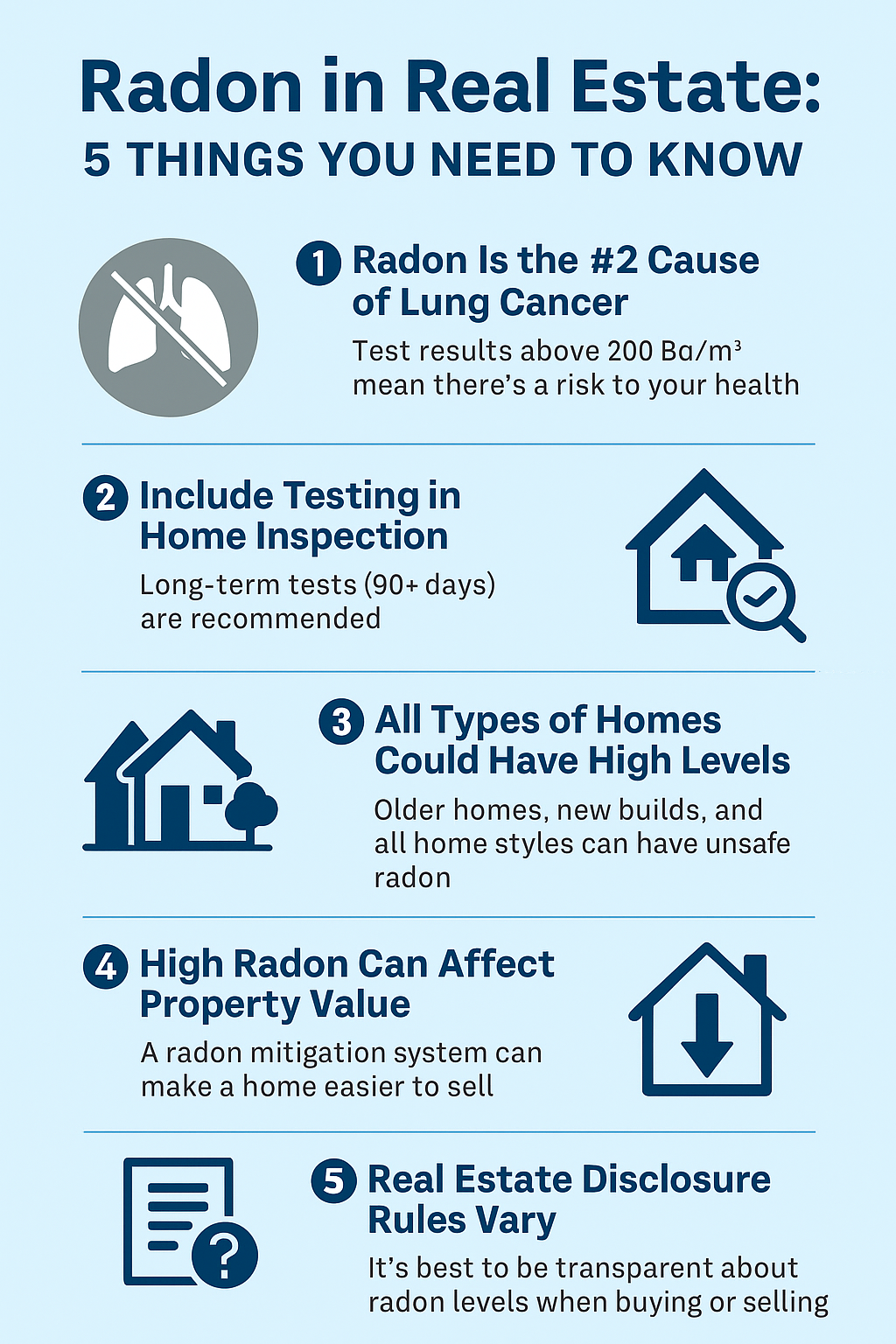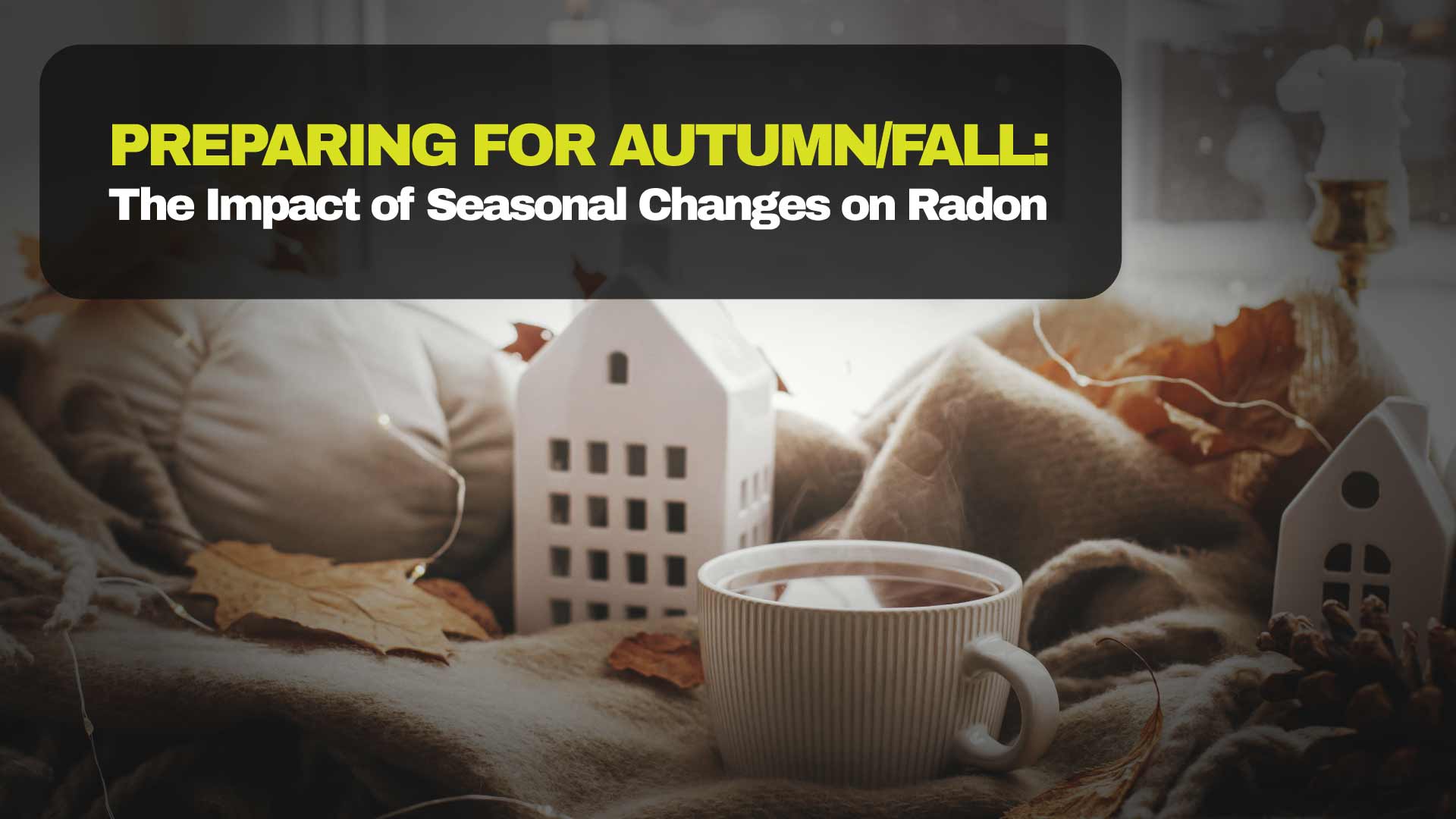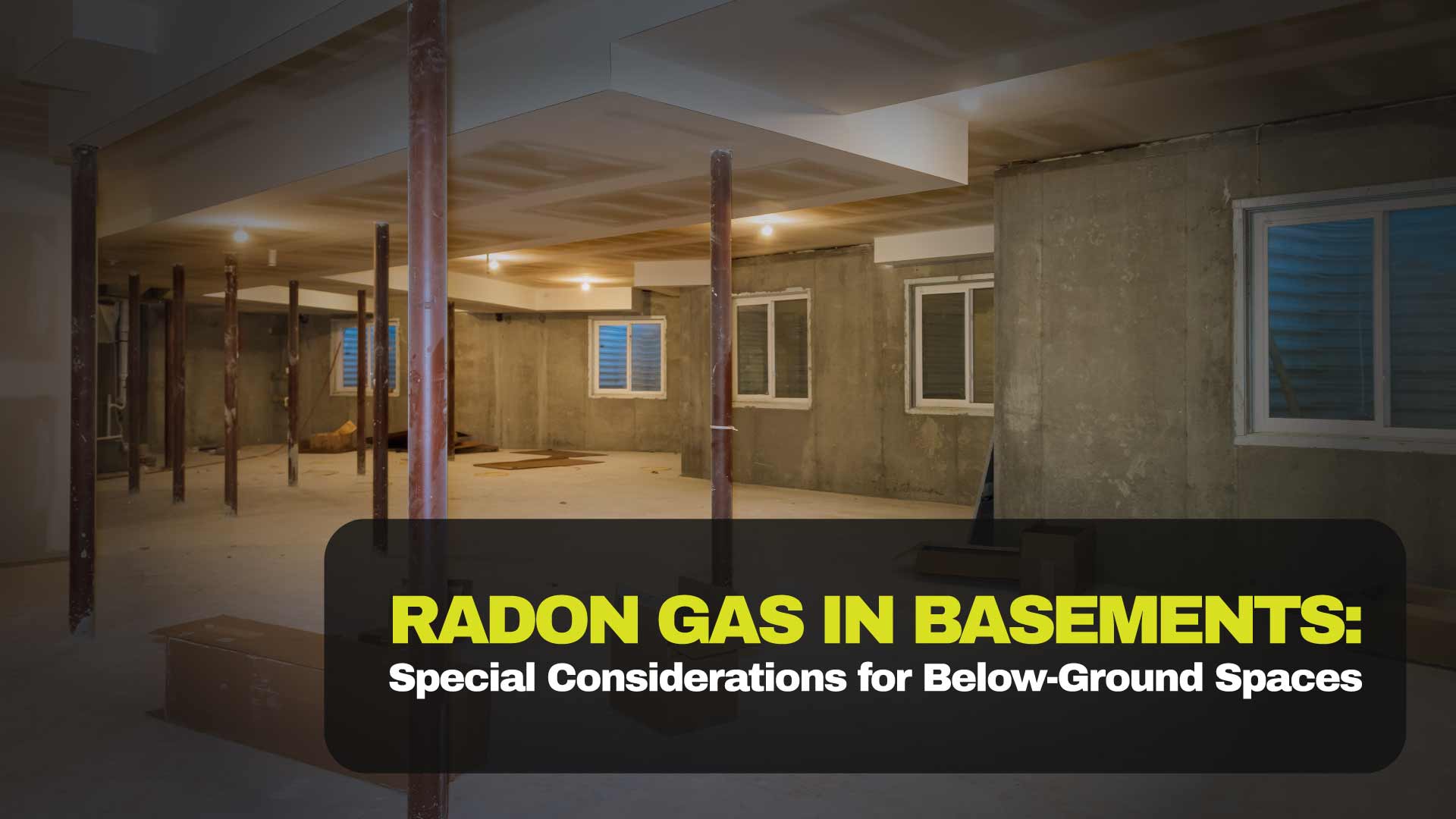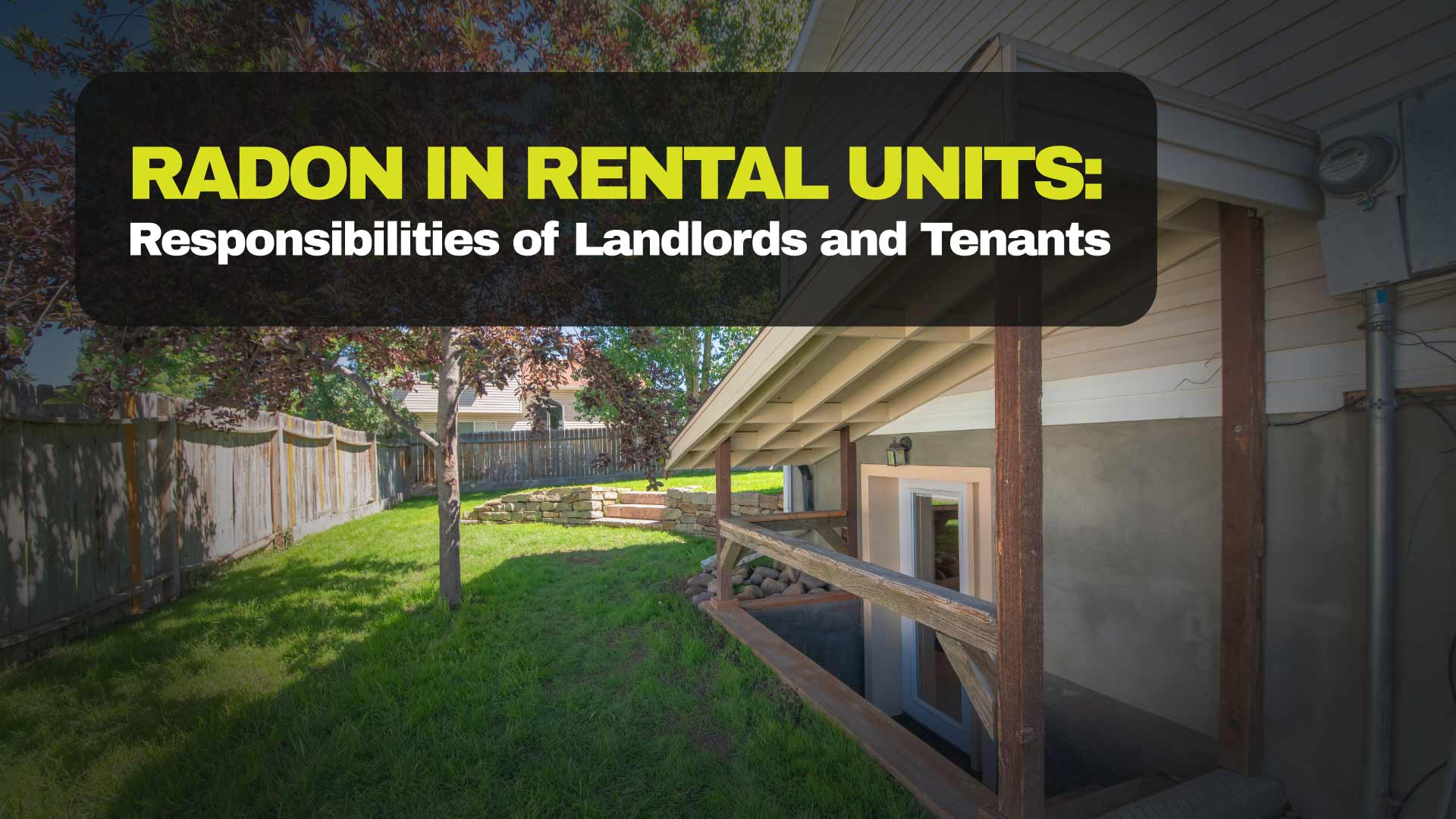Summary
Explore the implications of radon levels in real estate transactions, emphasizing the importance of testing during the buying or selling process and how it can impact property value.
Introduction: Radon is a Real Estate Issue Too
Radon isn’t just a health concern—it’s also a real estate issue. In Southern Ontario, where radon levels in many homes exceed Health Canada’s safe limit, radon testing has become a critical part of the home buying and selling process.
If you’re buying or selling a home, understanding the role of radon can protect your investment, health, and peace of mind. Here’s what you need to know.

What Is Radon and Why Does It Matter in Real Estate?
Radon is a radioactive gas that seeps into buildings from the ground. It’s invisible, odourless, and tasteless—making it undetectable without testing. Prolonged exposure to elevated radon levels is the second leading cause of lung cancer in Canada, just behind smoking.
Health Canada recommends that any home with radon levels above 200 Bq/m³ should be mitigated. In real estate, this threshold can influence home inspections, negotiations, and even financing.
Radon in Southern Ontario: A Growing Concern
Southern Ontario, including the Waterloo Region, Guelph, Hamilton, and the GTA, has seen higher-than-average radon levels. Studies show that 1 in 5 homes in Ontario exceed safe radon limits.
Even newer homes aren’t exempt. Airtight construction designed for energy efficiency can unintentionally trap radon gas, making radon testing just as critical in modern builds as in older properties.
For Homebuyers: Test Before You Invest
✅ Include Radon Testing in Your Home Inspection
Smart buyers are now including radon testing as part of their conditional offer. Long-term tests (90+ days) are ideal, but even a short-term test (2–7 days) can provide a quick snapshot.
🏡 Impact on Decision-Making
- High radon levels may require mitigation before finalizing a sale.
- Buyers can negotiate the cost of mitigation or ask for a price adjustment.
- A mitigated home may actually be more appealing, offering peace of mind.
For Home Sellers: Be Proactive, Not Reactive
🧪 Test Before Listing
Getting a radon test done before listing your home can:
- Prevent delays in the sale.
- Build trust with potential buyers.
- Give you the opportunity to fix any issues in advance.
💰 Boost Property Value
A home with proven low radon levels or a mitigation system installed may hold greater value and sell faster—especially with growing public awareness of health risks.
What If Radon Levels Are High?
High radon isn’t a dealbreaker—but inaction can be. Here’s what to do:
- Hire a C-NRPP certified radon mitigation professional.
- Most mitigation systems cost $2,000–$3,000 and reduce radon by over 90%.
- The installation is usually completed in one day, with little disruption.
A mitigated home is considered safe and often becomes a selling point.
Legal Considerations in Ontario
In Ontario, there’s no legal requirement to test for or disclose radon, but that’s changing. With increasing litigation over non-disclosure, realtors and legal professionals often recommend transparency to protect sellers and empower buyers.
Final Thought: A Small Step That Makes a Big Difference
Whether you’re buying or selling, radon testing isn’t just about avoiding future issues—it’s about protecting lives and investments. In today’s market, awareness of radon can set you apart and ensure a smoother, more transparent transaction.







